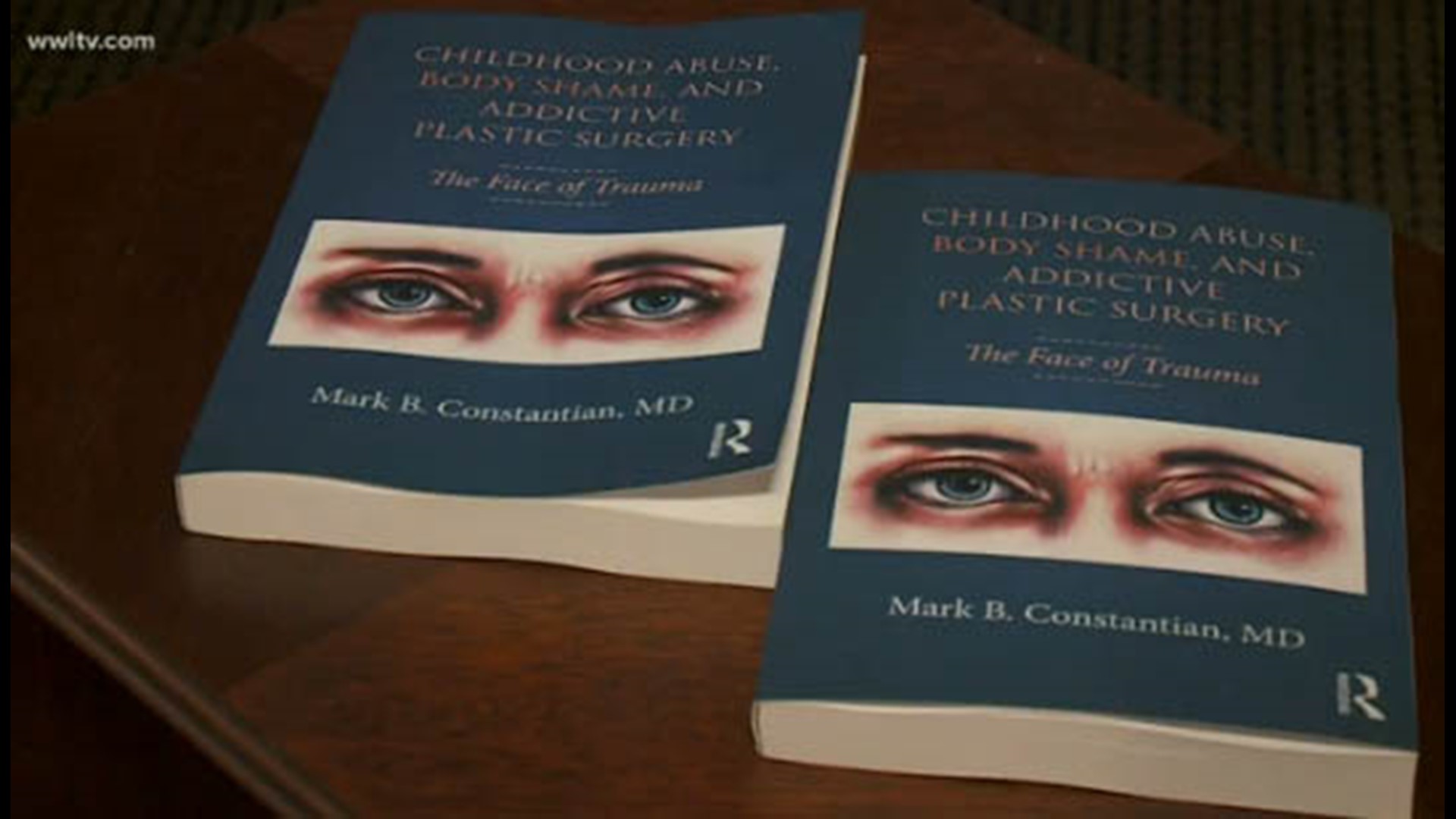NEW ORLEANS — After decades of doing cosmetic surgery, a doctor sees a pattern in people who continue to feel deficient, even after the procedure. And his research finds that the feelings go back to childhood.
"You don't look exactly like the Joan Rivers I used to know," said David Letterman on his talk show. "I take that as a compliment," Joan Rivers responded.
That is one of the scenes in the award-winning documentary 'Take My Nose...Please' where plastic surgery extremes are examined, but there others...
"What made you decide to have yourself done over?" Bob Hope asks Phyllis Diller. "Well I got sick and tired of having the dog drag me out in the yard and bury me," she answered.
Board certified plastic and reconstructive surgeon Dr. Mark Constantian of New Hampshire was in that film and says after 41 years of doing surgery, he sees a pattern in certain patients.
"The prevalence of childhood abuse and neglect in people who've had multiple cosmetic surgeries is over 90 percent in my research," said Dr. Constantian.
In his new book 'Childhood Abuse, Body Shame and Addictive Plastic Surgery, The Face of Trauma,' he explains the difference in body dissatisfaction with something a patient wants to change, and body shame.
"I see a lot of patients who come in and they've had five rhinoplasties and I say, 'Bring me a picture of what your nose looked like before surgery.' And the nose is perfectly normal. And I say, 'So what were you trying to accomplish?'" Dr. Constantian asks his patients. And they respond, "'Well my mother said I was the ugliest baby I ever saw or I wanted to be as pretty as my sister.'"
He wants other plastic surgeons and therapists and patients to understand that a childhood trauma, or neglect or abuse, physical or emotional, may be behind the body dysmorphic disorder.
"Unless you've had trauma work directed at the childhood damage at that level, you can't logic it out of people. So they have the surgery. They're still not happy and they go back to feeling the traumatized wounded child again."
In the documentary the producer asks a comedienne, "Was there any time that you liked the way you looked?" "No! That would be a no," she replies.
The doctor says if he sees signs of trauma, he will not do the surgery and suggests the patient get therapy, but he says most people refuse the help.
For more on the book:
Childhood Abuse, Body Shame, and Addictive Plastic Surgery: 9781138100312: Medicine & Health Science Books @ Amazon.com

